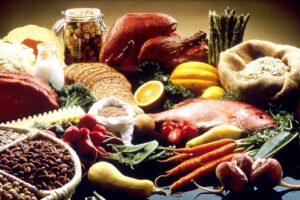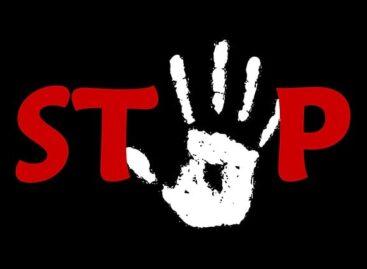EU food chain safety alerts
About 200 risky products had to be taken in Hungary last year based on the data of the EU alert system. The cases affecting our country were primarily related to poultry meat and products made from it, vegetables and fruits, spices, and dietary supplements. 86% of the cases involved products produced abroad. concerned – highlighted Olga Felkai Beáta in her preliminary annual summary.

(Photo: Pixabay)
Through the European Commission’s Food and Feed Safety Alert System (RASFF), Hungary was affected by 226 cases in 2022. The vast majority of Hungarian-related cases (192) were related to food, and problems also arose in connection with feed (16) and substances in contact with food (18). The most notifications were related to poultry meat and poultry products (32) and vegetables and fruits (26). The experts examined a large number of cases concerning spices and herbs (18), as well as dietary supplements, baby food and formulas (18). The Deputy Secretary of State responsible for food chain supervision of the Ministry of Agriculture highlighted that there were problems with domestically produced products in just 14% of cases, a total of 31 times. The Member States mainly objected to poultry meat or products made from it due to microbiological contamination. Nébih, as the Hungarian authority responsible for food chain supervision, reported 19 cases through the system last year, in all cases due to risky food. RASFF also played an important role in monitoring problematic products in 2022, as well as in measures related to them, emphasized Beáta Felkai. Almost half of the 61 recalls published in the Mébih Product Recall database this year were triggered by information received via the RASFF system.
Among the most memorable and interesting cases from a professional point of view, the deputy state secretary highlighted problems related to chocolate products and diseases caused by berries.
At the end of March, the European Commission reported a salmonella outbreak in several countries, including Hungary, in connection with Kinder chocolate products manufactured in Belgium. The Belgian factory was closed in April and product recalls were launched worldwide. A few months later, Salmonella was detected again in Belgian chocolate products. Thanks to the quick response of the alarm network, the products of the Barry-Callebaut company did not enter the retail market. In six European countries and the United Kingdom, frozen berries contaminated with the Hepatitis A virus caused illnesses. In the island country, for example, more than 300 cases have been reported. The detection of the epidemic started based on an investigation of a restaurant in Hungary, where 16 cases were recorded. The specialists identified the cold juice made from the mixed berries of Ardo Fruitberry in Poland as the source of the infection. The frozen fruit mix, marketed in more than 25 countries, was eventually recalled from the market. As an active member of the RASFF system, Nébih will continue to contribute to the maintenance of Hungarian and EU food chain safety in the future, emphasized Beáta Felkai.
AM
Related news
China imposes anti-dumping measures on wine spirits imported from the EU
China’s Ministry of Commerce announced anti-dumping measures on wine spirits…
Read more >Glass bottles found to contain microplastics
Drinks sold in glass bottles have been found to contain…
Read more >Spring Happiness brand canned lychee recalled due to pesticide content
Based on a notification received through the European Union’s Rapid…
Read more >Related news
Corporate leaders’ commitment to sustainability at record level
According to the latest data from the K&H Sustainability Index,…
Read more >FAO food price index rose slightly in June due to higher prices of meat, dairy products and vegetable oils
The Food and Agriculture Organization of the United Nations (FAO)…
Read more >What can cause the price of a wine to increase tenfold?
There are fewer of them worldwide than the number of…
Read more >






